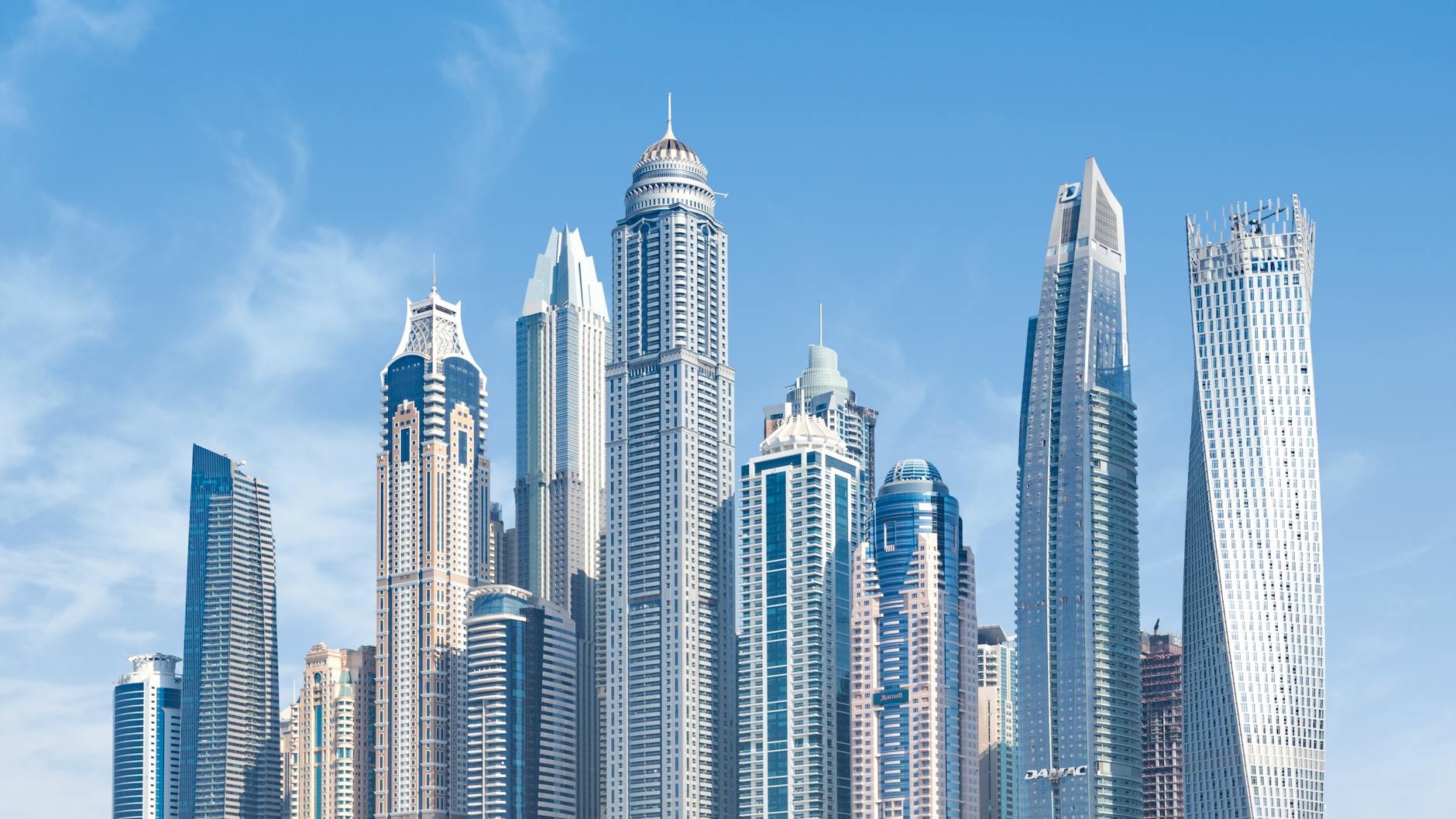
Study In Dubai
Studying abroad in Dubai, one of the most dynamic and modern cities in the world, offers international students a unique opportunity to experience world-class education, a multicultural environment, and a thriving business hub. Dubai is known for its excellent infrastructure, luxury lifestyle, and rapidly growing sectors such as finance, technology, hospitality, and engineering. It is also a global destination for education due to its diverse academic programs and internationally recognized universities.
Here’s a comprehensive guide on studying in Dubai:
1. Why Study in Dubai?
- World-Class Education: Dubai hosts several globally recognized universities and institutions that offer a wide range of academic programs. Some of these universities are branches of top universities from around the world.
- Strategic Location: Dubai is a key business and travel hub in the Middle East, offering students easy access to global networks and industries.
- Multicultural Environment: Dubai is home to students and professionals from across the globe, creating a vibrant, multicultural, and cosmopolitan atmosphere.
- Innovative and Modern Infrastructure: Dubai boasts a state-of-the-art infrastructure, including world-class educational institutions, transportation systems, healthcare facilities, and more.
- Post-Graduation Opportunities: Dubai offers great career opportunities in various sectors like real estate, finance, hospitality, and technology. Additionally, it has a growing startup ecosystem.
- Tax-Free Income: Dubai offers tax-free salaries, which can be a significant attraction for international students planning to work after graduation.
2. Popular Courses and Fields of Study
Dubai offers a wide variety of courses at undergraduate, graduate, and doctoral levels across multiple disciplines. Popular fields of study include:
- Business & Management (MBA, Marketing, Finance, International Business)
- Engineering (Civil, Mechanical, Electrical, Computer Science)
- Information Technology (Cybersecurity, Data Science, Software Engineering)
- Hospitality & Tourism Management
- Architecture & Design
- Health Sciences (Medicine, Nursing, Public Health, Dentistry)
- Aviation & Aerospace (Dubai is a global aviation hub)
- Arts & Humanities (Law, International Relations, Psychology)
- Media & Communications (Journalism, Mass Communication, Public Relations)
- Social Sciences (Economics, Political Science, Sociology)
3. Top Universities in Dubai
Dubai is home to many renowned universities, including branches of top global universities as well as prestigious local institutions:
- University of Wollongong in Dubai (UOWD): One of the most well-known Australian universities in Dubai offering a wide range of undergraduate and postgraduate programs.
- American University in Dubai (AUD): Offers American-style education with programs in business, arts, engineering, and computer science.
- University of Dubai (UD): Known for its business programs and close ties to the business community in Dubai.
- Heriot-Watt University Dubai: A branch of the UK-based university, focusing on engineering, business, and design programs.
- Dubai International Academic City (DIAC): A hub for international universities, including institutions like the University of Bradford and Middlesex University Dubai.
- Zayed University: A public university in Dubai, offering a variety of undergraduate and graduate programs.
- London Business School Dubai: Known for its top-tier business programs, including an Executive MBA.
4. Admission Requirements
Undergraduate Programs:
- High school diploma or equivalent qualification (e.g., A-levels, International Baccalaureate).
- English language proficiency (IELTS, TOEFL, or equivalent).
- Some programs may require standardized test scores (e.g., SAT or ACT).
- Personal Statement or Statement of Purpose (depending on the program).
Postgraduate Programs:
- A bachelor’s degree from an accredited institution.
- English language proficiency.
- Relevant work experience (particularly for MBA programs).
- Research proposal or portfolio (for certain programs like arts, architecture, or design).
- GMAT or GRE scores (some business or engineering programs may require this).
5. English Proficiency Requirements
Since English is the primary language of instruction in Dubai’s universities, most institutions require proof of English proficiency. Commonly accepted tests include:
- IELTS: Minimum score of 6.0 – 7.0, depending on the program.
- TOEFL: Minimum score of 70 – 100.
- PTE: Minimum score of 50 – 65.
Some universities may waive the English proficiency requirement if the student has completed prior education in English.
6. Visa and Study Permit
To study in Dubai, international students need a student visa. Here’s the process for applying:
- University Acceptance: You need to secure admission to a recognized university or educational institution in Dubai.
- Apply for Student Visa: The university typically sponsors your student visa, which allows you to stay in Dubai for the duration of your studies.
- Documents Required:
- Passport with at least 6 months validity.
- Proof of admission from the university.
- Proof of financial support to cover tuition and living expenses.
- Medical certificate (if required).
- Passport-sized photographs.
- Duration: Student visas are typically valid for one year and can be renewed as long as you are enrolled in your program.
- Work Rights: International students are allowed to work part-time (up to 20 hours per week) during their studies and full-time during breaks. However, work permits are required, and students should ensure they adhere to local labor laws.
7. Cost of Studying in Dubai
The cost of studying in Dubai can vary depending on the program, institution, and lifestyle choices. However, here is a general overview:
Tuition Fees:
- Undergraduate programs: AED 30,000 – AED 80,000 per year.
- Postgraduate programs: AED 40,000 – AED 100,000 per year.
- Vocational and Professional programs: AED 20,000 – AED 50,000 per year.
Living Costs:
- Accommodation: AED 2,500 – AED 6,000 per month (depending on the location and type of accommodation).
- Food and Groceries: AED 1,000 – AED 2,000 per month.
- Transportation: Public transportation costs approximately AED 300 – AED 500 per month. Taxis and private transport are more expensive.
- Miscellaneous Expenses: Around AED 1,000 – AED 1,500 per month for leisure, entertainment, and other personal expenses.
8. Scholarships and Financial Aid
Many universities in Dubai offer scholarships and financial aid for international students. These scholarships can cover tuition fees, living expenses, or a combination of both. Some common types of scholarships include:
- Merit-based Scholarships: Offered to students with outstanding academic performance.
- Sports Scholarships: Awarded to students excelling in sports.
- Government Scholarships: Some Emirati universities or government-sponsored programs offer scholarships to international students.
- University-specific Scholarships: Check with your university for specific opportunities, such as discounts for early applications or financial need-based aid.
9. Work Opportunities for International Students
Dubai has a vibrant job market with opportunities in various sectors. International students on a student visa can work part-time (up to 20 hours per week) during the academic year and full-time during breaks. The key industries for part-time work in Dubai include:
- Retail: Shopping malls and stores often hire students for part-time roles.
- Hospitality: Dubai’s booming tourism industry offers plenty of part-time and casual work opportunities.
- Technology: Students studying IT or business may find part-time roles in the technology and finance sectors.
- Freelance: Students with skills in writing, design, web development, and marketing can explore freelance work.
10. Post-Graduation and Immigration Opportunities
Dubai offers several pathways for students to stay and work after completing their studies:
- Post-Graduation Work Visa: International students can apply for a work visa after completing their studies. The UAE offers opportunities for graduates to work in key sectors like technology, engineering, business, and hospitality.
- Startup Visa: Dubai encourages innovation and entrepreneurship. Graduates with innovative ideas can apply for startup visas to launch their own businesses in the UAE.
- Golden Visa: The UAE has introduced the Golden Visa, a long-term residency program for skilled workers, investors, and entrepreneurs, which is available for graduates in certain fields.
11. Accommodation and Living Arrangements
Dubai offers a range of accommodation options for students:
- On-Campus Housing: Many universities offer student dormitories or apartments. These are usually more affordable and convenient, but availability can be limited.
- Private Accommodation: Renting a shared apartment or flat is a popular choice for students. Costs depend on the location, type of accommodation, and whether you are sharing with others.
- Student Hostels: Some students opt to stay in hostels or budget apartments while they search for long-term accommodation.
12. Things to Know Before You Go
- Cultural Etiquette: Dubai is a conservative city with strict laws regarding behavior, especially in public. It’s important to be respectful of local customs and dress modestly.
